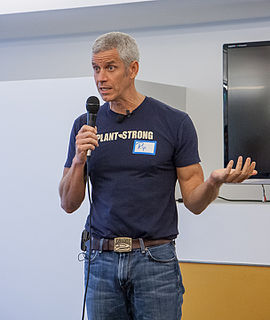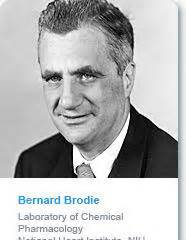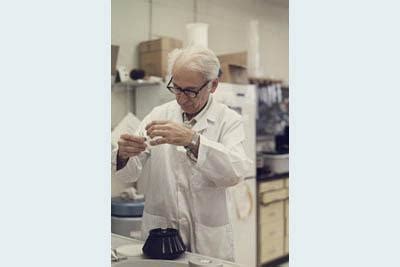A Quote by T. Colin Campbell
Excessive animal protein is at the core of many chronic diseases.
Related Quotes
It’s not the plant-based foods that will make you ill, it’s the meat and the liquid meat (i.e.: dairy) that can lead to sickness and death. Consider this: If your food had a face or a mother (or comes from something that did), then it also has varying amounts of artery-clogging, plaque-plugging, and cholesterol-hiking animal protein, animal cholesterol, and animal fat. These substances are the building blocks of the chronic diseases that plague Western society.
The quality of health care in Germany is not as good as people sometimes believe it to be. We have problems with chronic diseases. The German system allows too many hospitals and specialists to treat chronic diseases. We do not have enough volume in many institutions to deliver good quality, and we do have fairly strict separations ... between primary physicians, office specialists and hospital specialists. But I think the quality problems can be solved in the next couple of years, and we have made major progress in diabetes, coronary artery disease and pulmonary disease care.
...those who sit at their work and are therefore called 'chair workers,' such as cobblers and tailors, suffer from their own particular diseases ... [T]hese workers ... suffer from general ill-health and an excessive accumulation of unwholesome humors caused by their sedentary life ... so to some extent counteract the harm done by many days of sedentary life. On the association between chronic inactivity and poor health. Ramazzini urged that workers should at least exercise on holidays
Like many great ideas in biology, the idea implicating infectious causation in chronic diseases, though simple, has far-reaching implications. It is so simple and so significant, that one would think it would have been recognized by many and would be the starting point for any discussion on the causes of disease. Not yet.
I believe that the best way to create good living conditions for any animal, whether it's a captive animal living in a zoo, a farm animal or a pet, is to base animal welfare programs on the core emotion systems in the brain. My theory is that the environment animals live in should activate their positive emotions as much as possible, and not activate their negative emotions any more than necessary. If we get the animal's emotions rights, we will have fewer problem behaviors... All animals and people have the same core emotion systems in the brain.
Elsewhere the paper notes that vegetarians and vegans (including athletes) 'meet and exceed requirements' for protein. And, to render the whole we-should-worry-about-getting-enough-protein-and-therefore-eat-meat idea even more useless, other data suggests that excess animal protein intake is linked with osteoporosis, kidney disease, calcium stones in the urinary tract, and some cancers. Despite some persistent confusion, it is clear that vegetarians and vegans tend to have more optimal protein consumption than omnivores.


























